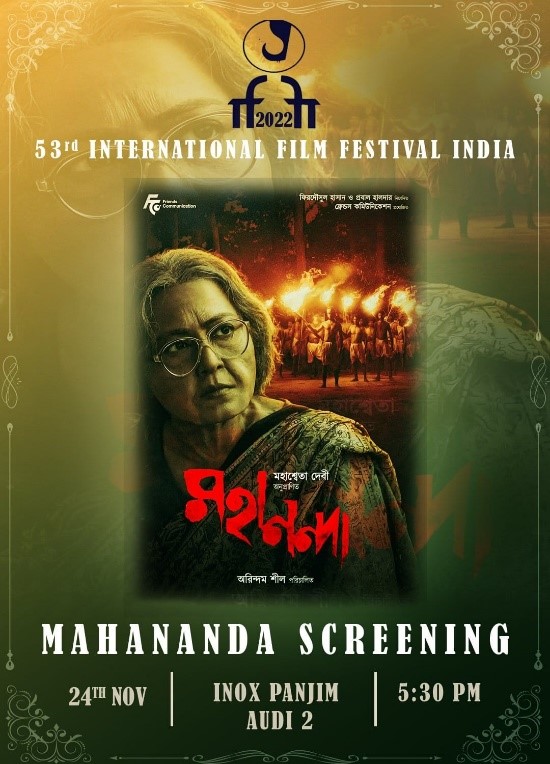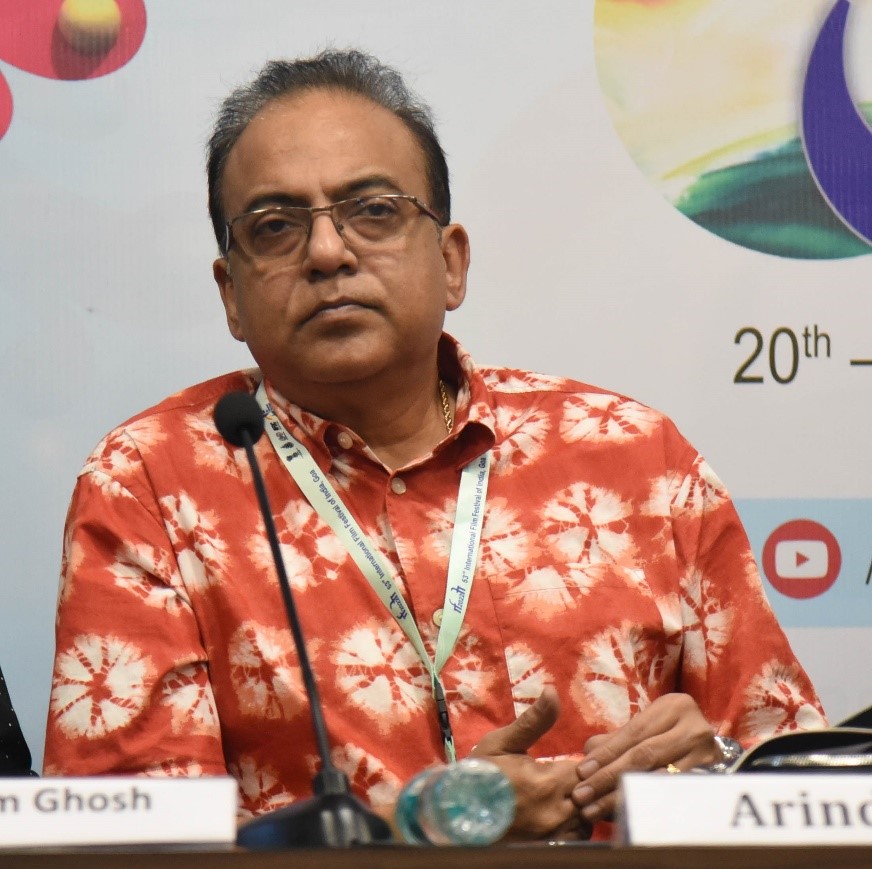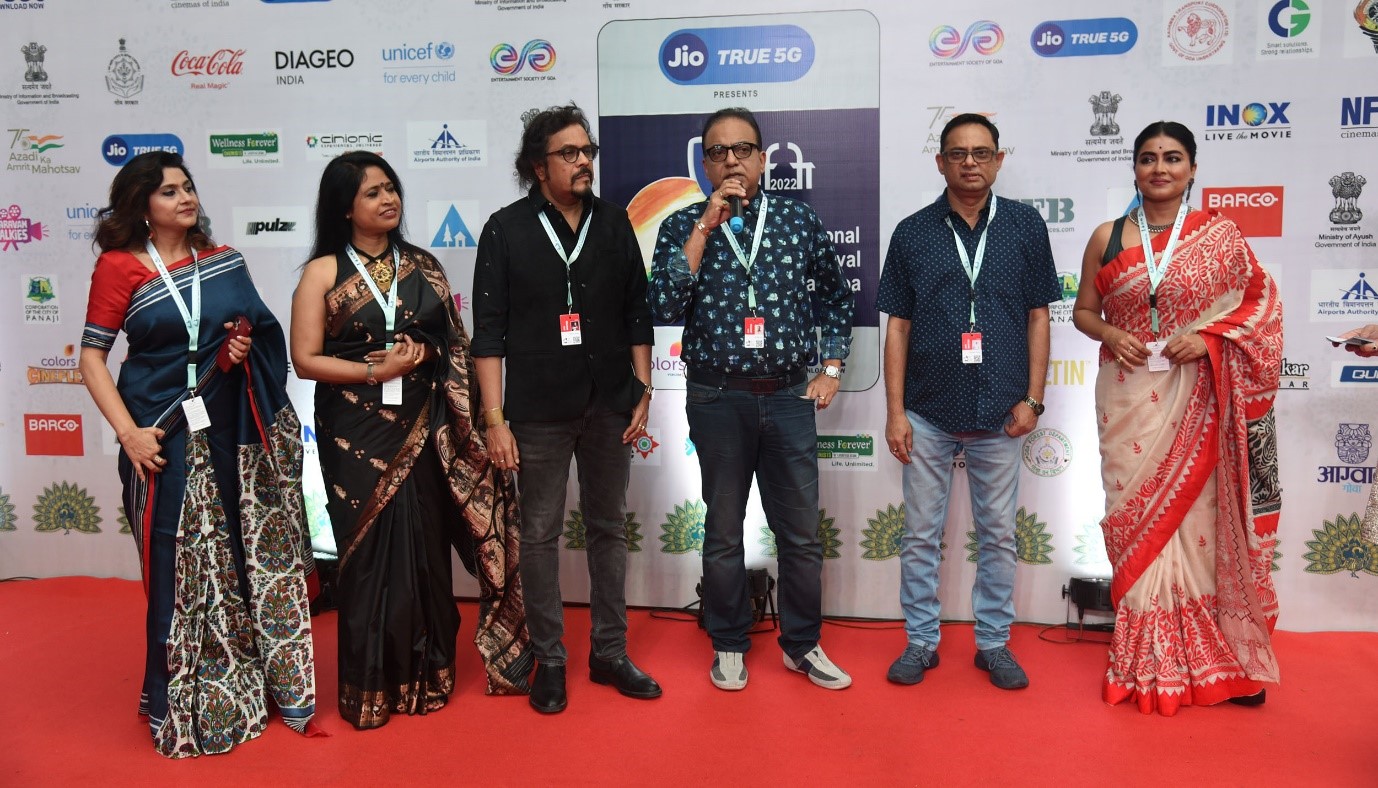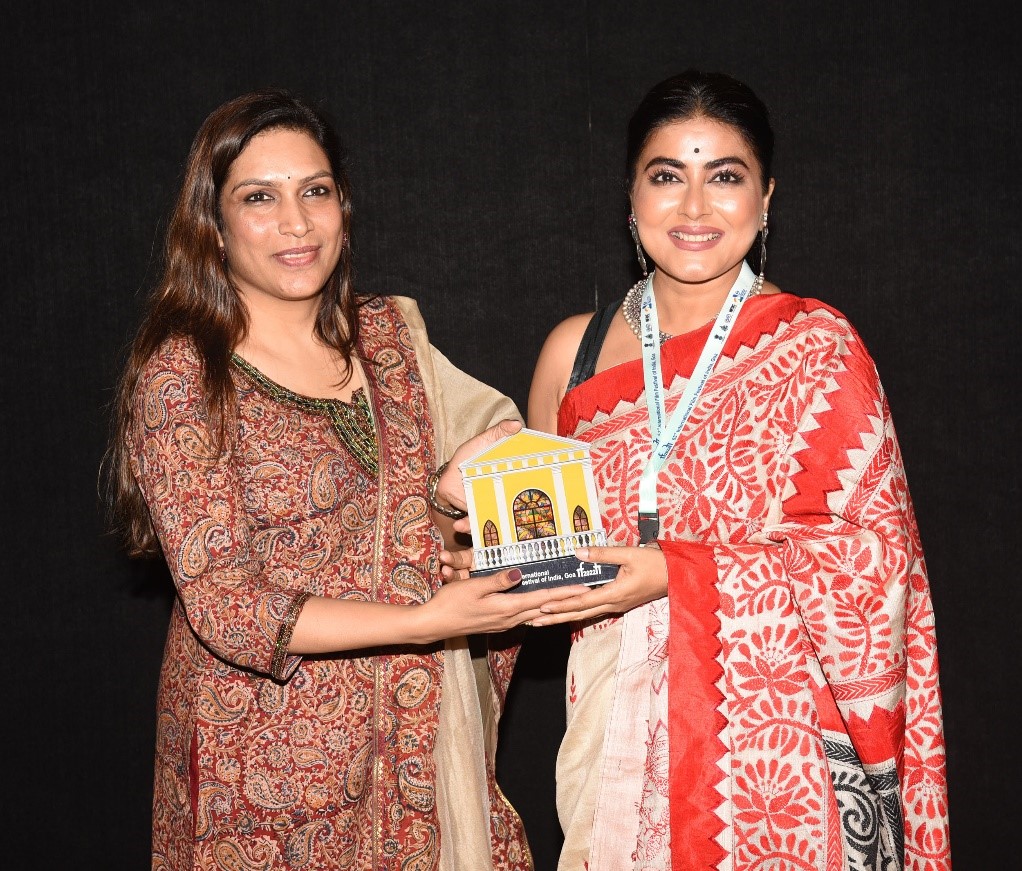Time to talk about principles of life, very few lead such a life: Arindam Sil, Director of IFFI 53 film ‘Mahananda’
Time to talk about principles of life, very few lead such a life: Arindam Sil, Director of IFFI 53 film ‘Mahananda’
“No one in this country has worked for the tribals – the Sabars and the Mundas – the way she did”
The songs of Mahananda are all tribal, using tribal music instruments like Dhodro Banam and bone flutes: Pt. Bickram Ghose
Posted On: 26 NOV 2022 , Mumbai
#IFFIWood, 26 November 2022
“All that we struggle for are for the real people of India. They may not know who the President of the country is or where Kolkata or Mumbai is, but these are the real people of India”. ‘Mahananda’, a biopic based on the life of writer-social activist Mahasweta Devi, brings to life the spirit behind these words, which the Director believes should continue to animate and ignite everyone. The Bengali film, which figures in the Indian Panorama – Feature Film section of the 53rd edition of IFFI, the International Film Festival of India, has been presented to festival delegates.

Addressing festival delegates at an IFFI Table Talks / Press Conference in Goa today, the Director Arindam Sil highlighted how important a subject to work upon it is in these very complex times. “This is the time to talk about the principles of life, as very few people nowadays actually lead a life of principles. Mahasweta Devi was one of the few people who lived a life based on principles. I feel it’s time we taught our children to lead a life of principles.”
So, what is it that has inspired him to make the film? Nothing less than a sense of moral responsibility, says Arindam Sil. “I felt that it is the moral responsibility of filmmakers like us to bring forward and talk about a personality like Mahasweta Devi who led a life of principles. She is someone whom we are all trying to forget. Mahasweta Devi is taught as a subject in American universities. In India’s universities however, we don’t even talk about her!”

So, what principles did the activist live for, which has now made telling her story a moral imperative? Describing Mahasweta Devi’s life story, Arindam Sil informs that hers is a contrarian story of riches to rags. “Coming from a capitalistic family and being married to a communist household, the principled lady left her husband and communist playwright Bijon Bhattacharya solely because he compromised on his principles and wrote frivolous film scripts to do well in life. In those days, Mahasweta Devi had shown the courage to leave her husband and child. She had tried to commit suicide out of mental agony. But she survived and went on to become one of the biggest social activists this country has ever produced!”

The Director asserted that Mahasweta Devi’s whole life was dedicated to fighting for who she referred to as the real people of India. “No one in this country has worked for the tribals – the Sabars and the Mundas – the way she did. Medha Patekar and Mahasweta Devi were like comrades in arms. Mahasweta Devi had said: ‘All that we struggle for are for the real people of India. They may not know who the President of the country is or where Kolkata or Mumbai, but these are the real people of India.’ Till her last day, she continued struggling and working and talking about these people whom we call backward classes. But they were the people who were the first amongst the Indians who actually fought against the British.”
“Mahasweta Devi was followed by masses; she was regarded as God in the jungles”, said the Director. We tried to bring out all these facts in the film, he added.
The focus of the film was to speak of Mahasweta Devi, the activist, asserted the Director. He didn’t want the biopic to just speak about Mahasweta Devi, the Sahitya Akademi Winner or Ramon Magsaysay Award winner, but for her real struggles for the real people of India.
So, what explains the title? “Like the River Mahananda, her principles should flow from one generation to another”, informs Arindam Sil.
Incidentally, the music director of the film is Pandit Bickram Ghose, who has been honoured with the Sangeet Natak Akademi award yesterday. Joining Arindam Sil for the IFFI Table Talks, the artist informed that the project was a challenging job musically. Key among the challenges was to bring out the constant ominousness the film was imbued with. “There is a constant ominousness in the film. Ominousness is one of tragedy, of death, of sorrow and of unexpected life jerks which her life was inundated with.”
A completely tribal music background score has been employed in order to bring out this ominousness, explains the music director. “That ominousness is juxtaposed in the film with a completely tribal score. The songs are all tribal. Lyrics, written by Subir Dasmunshi, are in the language of the Munda tribe. We used their instruments such as Dhodro Banam and bone flutes.”
However, classical music and raga rather than tribal music has been used to depict the part where her paternal family is shown, who were very high up in society in those days.
Bickram Ghosh explained how the two forms of music have been interwoven in keeping with the non-linear structure of the film. “There’s a scene where Mahasweta Devi is a 25-year-old, and just after that, the camera pans to show a 75-year-old Mahasweta Devi. So, the music had to be meshed together to go with the scene.”
Bickram Ghosh sums up the musical journey of the film: “It’s a harsh, dark and gripping reality. The music hence had to be organic, for which I got musicians from Santhal and Munda tribes, to ensure that the sounds were authentic.”

Arindam Sil complimented IFFI for accrediting the fact that regional filmmakers are actually making Indian cinema in various Indian languages. “We are actually making big cinema with a small budget.”
Actor Gargi Roychowdhury, who portrays the protagonist from the age of 30 years to 75 years, said that she enjoyed the journey of being Mahasweta Devi and stepping in her shoes using prosthetics and make-up.





